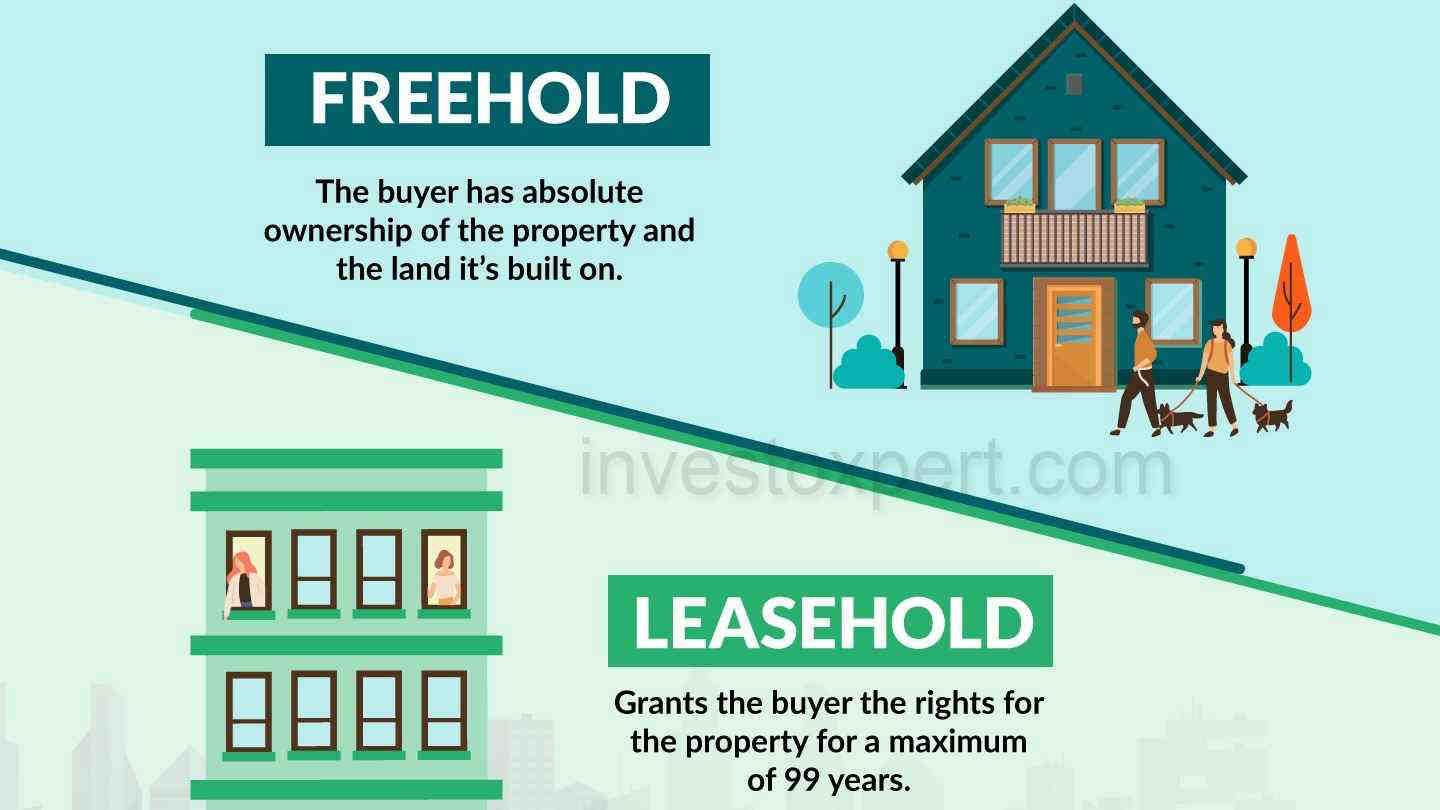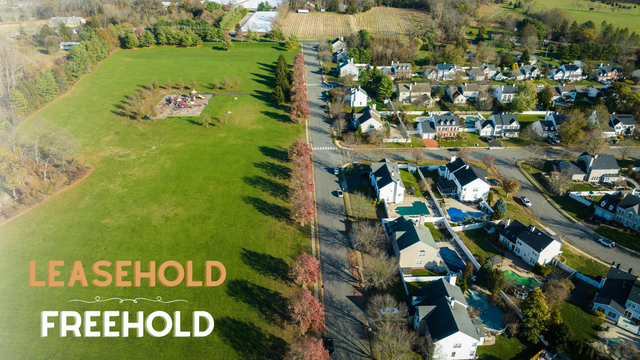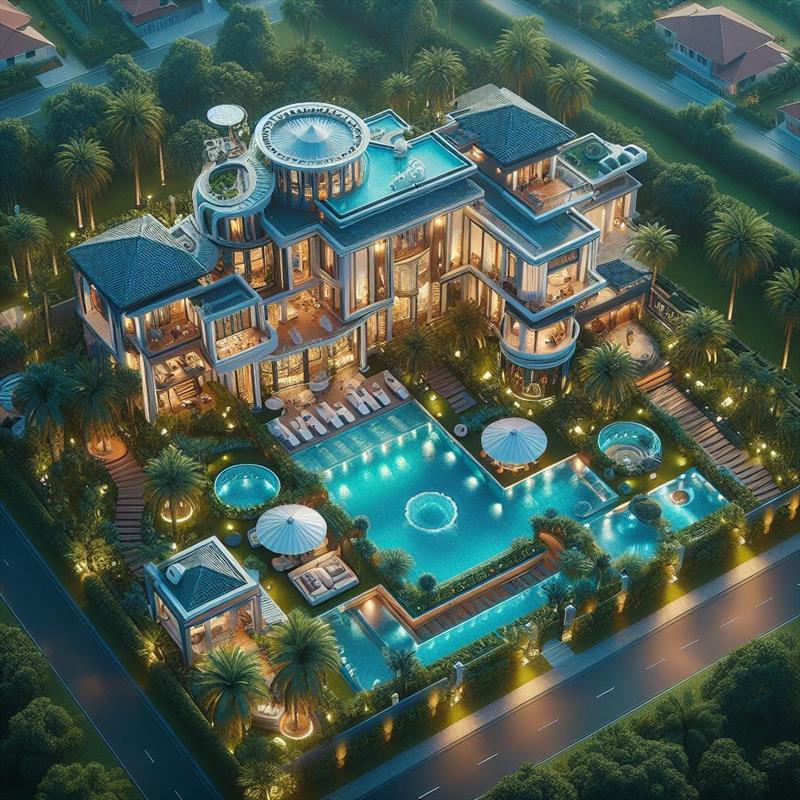Ever stumbled upon the term “freehold” while browsing real estate listings and wondered what it truly means? Understanding this key concept can make a world of difference in your property decisions.
Imagine owning a piece of land with complete freedom, without the worry of lease expirations. That’s the promise and allure of freehold ownership. But there’s more beneath the surface than just owning land indefinitely. What if you could unlock the secrets of freehold property and make more informed, confident choices?
You’ll discover exactly what freehold means, how it impacts your real estate journey, and why it might be the golden ticket you’ve been searching for. Dive in, and let clarity transform your property pursuits.
Freehold Vs Leasehold
Freehold and leasehold are two types of property ownership. Freehold means you own the land and the building. You have full control. No time limit on ownership. Leasehold means you own the building, not the land. You have a lease for a set time. It could be 99 years or less. After the lease ends, the land goes back to the owner. Freehold is more common with houses. Leasehold is common with apartments.
In freehold, you can make changes to your property. You don’t need permission. Leasehold often requires permission for changes. Freehold properties may cost more. Leasehold can be cheaper. Both have pros and cons. Freehold gives more freedom. Leasehold might have fewer upfront costs. Choosing between them depends on your needs.

Credit: www.investoxpert.com
Ownership Rights
Freehold gives full ownership of the land. The owner can use it forever. No time limit exists on this ownership. Land and buildings belong to the owner. The owner can sell or rent out the property. Owners can also pass it down to family. Control over the property is total. Freehold properties often include houses. Maintenance decisions are up to the owner. Taxes must be paid by the owner. Changes can be made without asking anyone.
Types Of Freehold Properties
Residential freehold properties give full ownership. You own the land and the building. No time limit on owning it. You can make changes to the property. Paint it, build a fence, or add a room. You decide what to do. It’s yours forever. Most houses are residential freehold. Apartments can be freehold too. It’s less common, but still possible.
Commercial freehold means owning shops or office buildings. Owners have full control over the property. They can rent it out. Businesses pay rent to use the space. Owners can also sell the property anytime. Great for investors who want steady income. Commercial freehold offers freedom to change the building. Owners can add more floors or change the layout. This type of freehold is popular in busy city areas.

Credit: www.haliburtongoldgroup.com
Benefits Of Freehold
Owning a freehold gives complete ownership of the property. This includes the land it sits on. Owners have no time limit on their ownership. They can live in or use the property forever. Freehold offers peace of mind for families. It provides a stable home for future generations. This security is a major benefit. It brings consistency and certainty.
Freehold properties often increase in value over time. Land ownership can make the property more valuable. Freehold properties may be more attractive to buyers. This can lead to higher sale prices. Owners can make changes to their property. They can improve it without needing permission. This flexibility can add value. It makes the property an investment for the future.
Challenges With Freehold
Freehold properties often have a higher price tag. Buyers need more money upfront. This can be hard for first-time buyers. Owning the land is a big reason for the cost. Freehold owners must pay for all the repairs. This adds to the cost over time.
Owners must take care of the property themselves. They are responsible for the house and land. This includes fixing the roof or mowing the lawn. Regular maintenance can be costly and time-consuming. Some owners may find it overwhelming. Being ready for these tasks is important.
Freehold In Different Countries
In the United States, a freehold means you own the land and the building. No one can take it without your permission. You pay property taxes every year. These taxes help your community with schools and roads.
In the UK, a freehold means you own everything on the land. You don’t pay ground rent to anyone. It’s common for houses to be freehold. Flats usually have a different type of ownership.
In Australia, a freehold means you own the land and home. It’s like having a forever home. You must follow local laws and pay taxes. These laws ensure everyone lives in a safe place.
Tips For Buying Freehold
Freehold property means you own the land and building. Check the title deed carefully. The deed shows ownership. Make sure there are no legal issues. Some properties have restrictions. Understand all rules before buying.
Freehold properties often need a loan. Banks offer different types of loans. Compare the interest rates. Some loans need more documents. Check if you qualify for the loan. Prepare your budget wisely. Save for extra costs like taxes and fees. A good plan helps avoid problems.

Credit: www.youtube.com
Frequently Asked Questions
What Is Freehold Property In Real Estate?
Freehold property means the owner has complete control and ownership. They have the right to use, sell, or lease it. There are no time limits on ownership. It’s considered more secure and valuable than leasehold properties. Owners are responsible for property maintenance and taxes.
How Does Freehold Differ From Leasehold?
Freehold ownership is permanent, while leasehold is temporary, often lasting decades. Leaseholders pay rent to the freeholder and may face restrictions. Freehold owners have full control and can alter the property. Leasehold agreements can expire, requiring renewal or negotiation.
Why Choose Freehold Over Leasehold?
Freehold offers long-term security and complete ownership rights. It allows property alterations without approval. Leasehold can have restrictions and renewal negotiations. Freehold properties often have better resale value. Freeholders avoid paying ground rent, saving money in the long run.
Are Freehold Properties More Expensive?
Yes, freehold properties typically cost more due to permanent ownership rights. They offer long-term security and control. This makes them a valuable investment. The absence of ground rent and fewer restrictions add to their appeal. The higher price reflects the additional benefits.
Conclusion
Freehold ownership offers lasting property rights. You own the land indefinitely. No lease or rent payments. This stability attracts many homebuyers. It’s a reliable investment choice. Ownership remains with you and your heirs. No worries about lease expiration. You can modify and renovate freely.
Perfect for long-term planning. Understanding freehold helps make informed decisions. It’s crucial for real estate success. Research thoroughly before purchasing. Make sure it fits your needs. Consult experts if uncertain. Enjoy peace of mind with freehold. Your property, your rules, forever.
